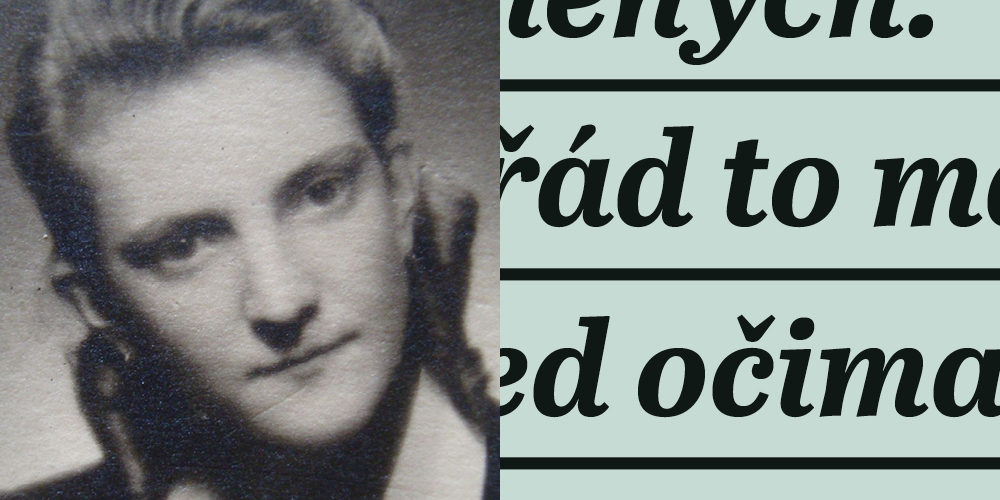
“We were always living in fear. The Banderovs came to us at night, the Red Army took people to Siberia, then the Germans came. So, I was not afraid to join the army,” says Slávka Altmanová, née Ficková.
She came from the village of Semiduby in Volhynia, in today’s Ukraine. The Czech minority lived there culturally and the children, including Slávka, were instilled with a love for their original homeland. With the beginning of the war, however, the Czechs of Volhynia found themselves caught between the Bolsheviks, the Banderovs, and the German occupiers. Her father Vladimír Ficek was lucky to escape the NKVD’s deportation.
After the Red Army drove the Nazis out of Volhynia in early 1944, Slávka voluntarily joined the army. She completed a short training in Halych, and by the end of August she was already heading to the front as a member of the liaison army with the artillery forces. She endured the fierce battles at Dukla and made it all the way to Prague in the ranks of the 1st Czechoslovak Army Corps.
Even after the war, Slávka Altmanová’s fear has not left her. For two years she waited to see if her parents would be able to come to Czechoslovakia. “Stalin blocked it, he didn’t want to let them go,” she says.
The mental and physical effects of the war years trailed her throughout her life.
Liberation
Nazi Germany was defeated in the Second World War by the determination, bravery, and combat deployment of soldiers from the United States, Great Britain, Poland, France, the Soviet Union, and other countries and nations. But the Soviet Union, led by the dictator Stalin, did not join the Allies until it itself was attacked by the Nazis in June 1941. Until then, the USSR had acted as a partner of Nazi Germany in the spirit of the Molotov-Ribbentrop Pact concluded shortly before the outbreak of the war. At that time, when tens of thousands of Czechoslovaks fled from the Nazis to the USSR, they often ended up in gulag labor camps. The Red Army did not enter the war until the summer of 1941 after Nazi Germany had invaded.
The Soviet Union deployed over six million soldiers to the Eastern Front. We can speak of great heroism and huge losses. The Red Army, with great effort, defeated the better armed and trained German Wehrmacht, and with it the prestige of the “land of the Soviets” logically grew. However, when we talk about the liberation of Czechoslovakia, we must mention, besides the Soviet victims (up to 140,000 Red Army soldiers are said to have died), the tens of thousands of our soldiers fighting alongside the Allies on the Eastern and Western fronts, the brave Slovak insurgents, the paratroopers, partisans and thousands of their helpers, the insurgents from the barricades of Czech towns at the end of the war, and last but not least the soldiers of the American Army who liberated part of the Czechoslovak territory from the west, as well as the forgotten Romanian soldiers advancing with the Soviets from the east. On 8 May 1945, after six long years, peace reigned in Europe and Czechoslovakia became a liberated country. But not free.



